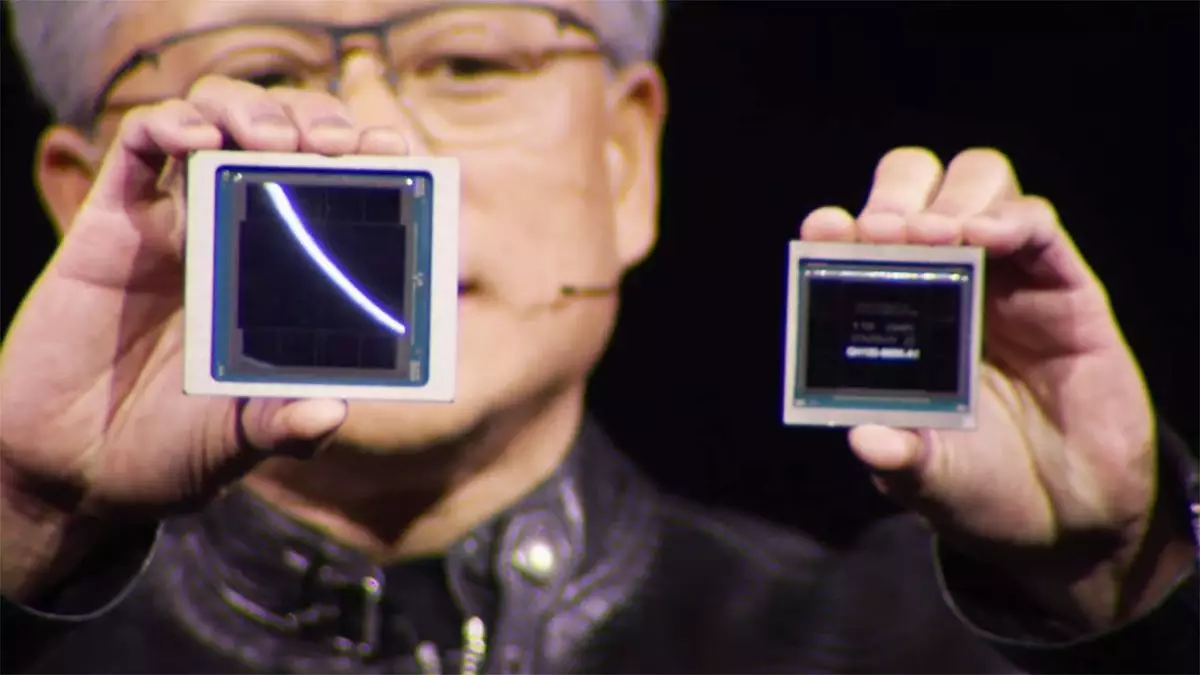Nvidia’s much-anticipated Blackwell chips are finally hitting server floors, notably within Microsoft’s Azure infrastructure. However, the rollout has faced delays and scrutiny that have clouded its debut. Initial plans for an earlier launch have been overshadowed by mounting concerns that the chips may not have undergone thorough testing. Reports suggest that an untimely introduction may compromise performance, signaling that the urgency to reach the market may have had adverse repercussions.
In examining the reports from various tech outlets, including The Information, it appears that testing conducted shortly after Nvidia CEO Jensen Huang’s announcement revealed significant issues. The Blackwell chips reportedly struggled under high-voltage conditions typical in data centers, raising alarms about their reliability. Insider accounts indicate a fragmentation in accountability, as TSMC, the chipmaker, and Nvidia engage in a blame game regarding the rushed production timeline versus the integrity of TSMC’s packaging technology. Such discord can lead to a breakdown in collaboration that has spanned nearly three decades, with each side seemingly entrenched in its perspective.
Amidst the turmoil surrounding the Blackwell chips, Nvidia is contemplating a return to Samsung for manufacturing needs, following a previous stint with the 30-series ‘Ampere’ GPUs. The proposition comes with the allure of a 20-30% price reduction—an enticing pitch but one that must be assessed against a backdrop of caution. Nvidia’s past experience with Samsung resulted in price hikes and supply shortages, underlining the precarious balance between cost and reliability.
Still, it’s essential to recognize that TSMC currently stands as the predominant force in the semiconductor market. The company possesses advanced fabrication capabilities, designed exclusively for clients without reserving capacity for its products. Nvidia would be wise not to overlook these strategic advantages when evaluating potential partners.
Despite yearning for a better financial standing, Samsung has grappled with its own market dynamics. Its struggles are reflected in declining stock prices and a retreat of foreign investment. Nonetheless, the conglomerate remains a significant player, actively pursuing new opportunities in global markets, including the Middle East, and investing in cutting-edge technologies, like the development of 1.4 nm chips.
Comparing TSMC’s robust growth, as evidenced by its 39% sales increase year-over-year, with Samsung’s recent hurdles encapsulates the volatility of the semiconductor sector. Nvidia, therefore, faces a challenging decision in selecting a partner that aligns both with its production needs and its operational challenges. Waiting for the right technological support while securing more favorable pricing conditions could be key to ensuring the stability of its future chip launches.
Looking Ahead: A Hope for Quality
As the dust settles from the recent revelations, Nvidia aficionados and industry observers alike will be closely monitoring the implications for the forthcoming RTX 50-series graphics cards. The hope is that the defects associated with the Blackwell chips do not extend into future products, jeopardizing Nvidia’s hard-earned reputation for high-performance technology.
As Nvidia navigates these turbulent waters, it remains precarious to judge the trajectory of its partnerships. The deep-seated relationship with TSMC faces strain, yet their unique offering remains unmatched in the industry. Nvidia must balance its aspirations for cost reductions with the undeniable value that reliability and performance bring to its product line. Staying attuned to market shifts and technological advancements will be essential as Nvidia anticipates its next move in a competitive landscape that shows no signs of slowing down.

